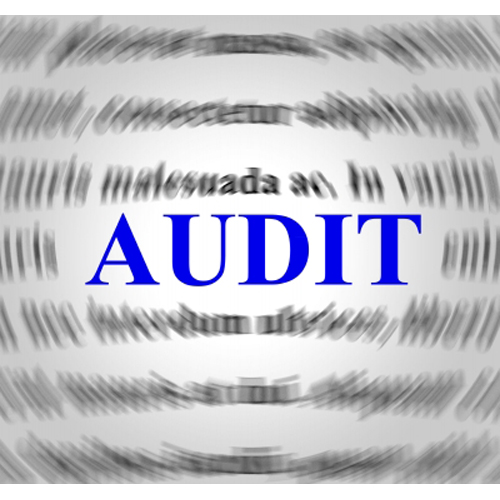
Nonprofit organizations may be exempt from certain tax requirements but they aren’t exempt from being audited by the IRS. In fact they may actually be scrutinized more than for-profit companies due to their tax advantages. A for-profit company being found to make a mistake in taxes can usually pay a fine and move on. But a nonprofit has its tax exempt status and therefore its entire existence at risk. A nonprofit may find itself face to face with an audit for many reasons other than random selection. Irregularities in or failure to file IRS Form 990s, negative media attention, filed complaints against the organization, or even having an affiliation with a taxpayer who is being audited could bring reason for the IRS to come snooping. How can you best protect your organization if you are faced with an IRS audit?
Conducting regular internal audits are a good way to uncover any potential problems in the organization before they get discovered by the IRS. This is also productive in providing room for negotiation with the IRS in the event a mistake does come to light. The primary focus during an audit is on a nonprofit’s 990 and governing body so consider the following areas that may be under investigation:
Exemption Status: The IRS will want to review whether or not an organization is maintaining its tax-exempt status by passing the organizational test and the operational test. The organizational test requires a review of the Articles of Incorporation and Bylaws making sure they include an acceptable purpose clause, powers clause, and dissolution clause. The operational test focuses on making sure the organization engages primarily in activities that accomplish the exempt purposes specified in section 501(c)(3) of the IRC, and refrains from engaging in private benefit or inurement, substantial lobbying, and political activity.
Governance: The IRS will want to review the role the Board of Directors plays in the organization’s operations. They may request a review of the Articles and Bylaws; board meeting minutes; Conflict of Interest Policy; list of current and former officers, directors, and key employees (and disclosures of any relationships among them); list of members and any member benefits; and correspondence files.
Financial Compliance: The IRS will of course want to conduct a financial review to validate compliance. This review may include records of grants received, chart of accounts, bank and investment records, internal and independent audited financial statements, year-end summary ledgers, year-end adjustments, expense reports, documentation to back up the Functional Expense Statements, records for assets and liabilities, and any analysis documenting the reconciliation of the Form 990.
Tax Compliance: The IRS will want to confirm that the organization is filing all required forms on time and all required taxes are being paid. They may request to review the organization’s Forms 990 for the tax years in question as well as employment tax returns and records relating to amounts of compensation paid.
All in all having solid governing documents, policies, and procedures in effect and a regularly enforced Conflict of Interest Policy can result in fewer audit concerns. Taking a pro-active approach by conducting regular internal audits and legal checks can go a long way to avoiding the frantic headless chicken dance an audit notice often ensues.
(Compiled from IRS Audits of Tax-exempt Entities, Ellis Carter; Charity and Nonprofit Audits on irs.gov.)



